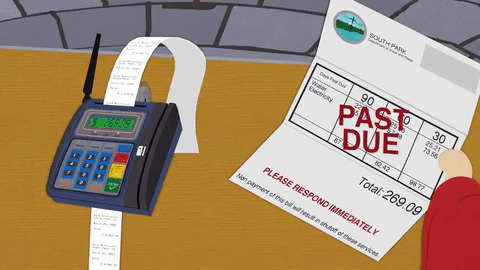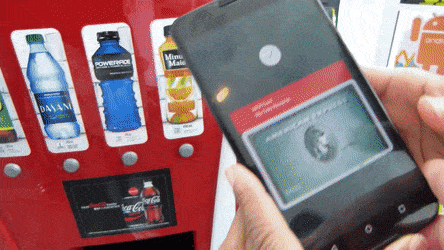

Exclusive Dynamics offers reliable & affordable Point of Sale for your business.

1. Inventory Management
2. Simple Invoicing
3. Quick Payments
4. Better Customer Orders
5. Better Purchasing / Supplier Order Management
6. Point of Sale Hardware and Software
7. Advanced Reports
8. Technical & Technological Support
9. Multi-Store Functions

A point of sale, or point of purchase, is where you ring up customers.
When customers check out online, walk up to your checkout counter,
or pick out an item from your stand or booth, they’re at the point of sale.
Your point-of-sale system is the hardware and software that enable your business to make those sales.

There are many benefits of purchasing a POS system, notably making it easier to manage your retail business. A POS system can significantly simplify daily business tasks and in some cases can even be revenue-generating. A POS (Point of Sale) system is the combination of software and hardware to facilitate your business operations. A POS consists of software and hardware to run the software. Hardware may include a computer, a physical terminal, a scanner, a printer, and other devices to operate the point-of-sale software. The software tracks and organizes your store’s information. It’s good to understand what a POS system is, but it’s more important to know the benefits it can bring to your business. There are several advantages to buying a POS system. Here are 27 reasons why it would be beneficial to implement a POS system in your store if you own a retail business.

A POS makes it easy to keep track of the inventory your store has. It allows you to manage your inventory in real-time and to know the number of products you own over a given period. When you receive your inventory, if these products are already in your catalog, simply scan your items, enter your quantities and the articles will be recorded in the inventory of your POS software. This saves a lot of time compared to manual tracking of your inventory. In the end, there will be fewer errors in your inventory.
Point of sale software allows you to record and group all your invoices. There are several
categories of invoices to manage in a company and it is important to be able to easily
distinguish them. You can find invoices for purchases, sales, repairs, rentals,
consignments, and others depending on the software.
Easy invoice management is especially important for your accounting operations. It is proof
that you have sold a product or service. The invoice contains important information for the
buyer such as the transaction value, the number of goods sold, the description of the goods, etc.
Performing this follow-up would be complex if it were done manually. Thus, the point of
sale makes it possible to issue invoices, record purchase information and sell much faster
than if it were done manually.
Managing your invoices manually can become complex. To find out more about this topic, read
our article on the different types of control systems here.
A point of sale helps make payments faster. The employee selects the products the consumer
wants to buy and the system automatically calculates the price. The invoice can be sent by
email or printed directly on the spot with a receipt printer.
Depending on the integrations and the terminal, customers can pay by cash, credit or debit
card. This makes it quick and easy for the customer to complete the transaction.
With a point-of-sale, waiting time is greatly reduced for consumers, and employees
can be more efficient in completing transactions.
By having a POS system, it is possible to document your customers’ information in your system.
It can be their name, phone number, purchases, e-mail, etc. By having customer data, you can
have a better overview of your target market, as well as customer groups (for example your new or loyal customers).
You can send promotions to your customers to incentivize them to visit your shop more often or
to build customer loyalty. The system can help you track each customer to offer targeted
promotions. Having proper customer information management allows you to thoroughly understand
your target customers and make better business decisions.
Your customers may want an item that you do not have in stock. If the product is
popular, you will probably place a new order. In Alice POS, we refer to this as a customer
order. You can enter the order in your POS, and then set it aside when you receive it.
You can associate the order with the customer’s file, which may contain their name,
phone number and a description of the product they would like.
Once you have the product, the software informs the employees to remind them to contact
the customer in question. This feature supports the store in keeping track of the orders
requested and recording them. This can help ensure better customer satisfaction and can
sometimes become an additional revenue stream.
Purchasing equipment for your business is essential. This is why a POS system
is useful to properly manage your purchases from your suppliers. It allows you to
keep track of all your orders placed.
Some POS software have an open API that allows you to connect directly to your supplier.
When you place your orders from your point of sale, you will be able to view all your
invoices for your orders in your POS system. This gives you control over purchasing
and allows you to keep track of items ordered from suppliers. When you purchase equipment
from a supplier, you will receive an invoice that contains all the information about your
purchases. This includes the products bought, quantity, description, cost, and more.
Also, a POS system allows you to plan your future purchases, as well as the minimum
amount of products you need for your store. This helps to have better control of your
purchases and to have the optimal amount of stock in your store to minimize your losses.
We’ve seen many reasons why having a point of sale can be an asset for you,
but it can also provide a better customer experience in your store for your
customers. Creating a proper customer experience leads to better customer
satisfaction, and as mentioned earlier, a fast point of sale allows you to
complete transactions faster. Consumers don’t like to wait and a fast point
of sale is an excellent advantage for them too.
You can also use your POS to offer related products through cross-selling features.
Cross-selling features allow you to offer items that are related to the item the
consumer is buying. For example, if a customer is buying a fishing rod, your
employee can offer him lures with his product. This can help customers to be
more satisfied with their purchases.
You can also integrate your shop with an e-commerce platform. Your customers will
be able to buy online and view your products anywhere. By offering multiple channels,
you can create a better shopping experience for your customers.
With a POS system, it’s easier to exceed consumers’ initial expectations by
providing fast, accurate and efficient service. By combining these three components,
customers will surely be more satisfied and will likely return to your store.
With better satisfaction, customers will likely be loyal to your store. This can be
a huge advantage for your business because it is often easier to keep current customers
than to acquire new ones. By having a satisfied and loyal customer base, you can reduce
the risk of losing customers and losing money.
The security of a company’s data is very important. Your data needs to be accessible to
the company’s authorized users only. With a POS system, your data is more secured from
unknown intrusion.
Most systems offer double user authentication. This reduces the intrusion of malicious
users into your system. Also, the administrator can quickly grant or block access to users.
If you want your data to be backed up and protected at all times, use a cloud-based point
of sale. At Alice POS, our cloud computing solution allows you to back up your data
systematically and automatically. Also, you can consult your data anywhere and at any time.
By having your data stored in the cloud, you can be sure that it’s covered from natural
disasters such as floods or store fires.
Optimizing employee time can become complicated without tangible data. With a POS system,
it can be easier to manage your staff and optimize their schedules.
A POS system, like Alice POS, allows you to see sales per employee, their hours worked,
and sales per time slot. With this information, you can see which employees are
performing well, which are not, and the peak hours in the store. By having this information,
it would be easier to build schedules, optimize employee time on the floor, and provide ongoing training.
Having multiple promotions may be difficult to manage and to know which are active and inactive.
By having a POS system, you may tend to be more efficient in running your promotions.
You just have to select the items you want to promote in the software, indicating the type of
discount and the duration. Once you have set up your promotions, all you have to do is activate them.
With this function, you can save time in the management of your promotions. It should also be easier
to navigate to find your promotions. This allows you to keep track of your active promotions.
A POS system may allow you to provide better customer service for your store by combining the
benefits mentioned in this article.
In general, a POS system helps you improve your operations for your customers. This includes
reducing waiting time, faster scanning of items, quicker payments, etc.
With these operational improvements, customers will tend to get better service and come back
to your store for their next purchase.
With a POS system, your business may tend to be more organized. By being well organized, your
business may become more productive, including more fluid communication with your colleagues and stores.
POS systems offer many features in this regard. This includes the management of your sales,
inventory, customers, suppliers, etc. With these functions available within the same software,
your company only has to use a single platform to perform its activities.
For stores that are part of a network, all members of the network can receive the same information,
resulting in fewer communication errors. By reducing these errors, the company can aspire to
increase their productivity, as well as increase profit.
This helps to facilitate the follow-up of all your business activities, as well as your evolution
for each quarter for example. By knowing your evolution, it will be easier to set your next business objectives.
By implementing a POS system in your store, customers may tend to have a better perception of your business.
Indeed, by considering the benefits of a POS system mentioned in this article, consumers may
have a positive attitude towards your store against a store that is organized on paper.
With a POS system, waiting time is reduced, transactions are fast and scanning items is quick.
These perks can help your store create a solid level of trust, a strong reputation, and concrete credibility.
Your customers could recommend your company to their relatives and can bring you potential consumers in the future.
POS systems may require updates to work properly. Some POS providers offer support to users
by providing updates. These updates may contain bug fixes, new features, etc.
Some vendors ensure that you have up-to-date POS software. Updating a cloud-based POS is
easier than a server and POS installed on site. However, this depends on your provider and the services they offer.
Some providers manage the system so users have a pleasant experience with the POS software.
In this case, companies don’t have to manage the system because their supplier manages the system for them.
Each POS provider has its own services and functionalities.
Some POS are cloud-based, others are installed on-site with a local server. However, the POS installed
on site are exposed to multiple risks such as data loss, difficulties in tracking inventory, risk of
errors and others. Exclusive Dynamics offers a cloud-based point of sale where you can consult your data
anywhere with better protection.
With Alice POS, you can consult your data anywhere and anytime by logging in to your administrator account.
You can follow your company’s activities in real-time even if you are outside your establishment.
Additionally, your data is better protected from natural disasters such as floods or fires.
This allows you to manage and control your operations even if you are away from your store.
With a point of sale, your business operations can be simplified. Indeed, a POS can reduce the number of operations you perform in your store. For example, if your inventory management is computerized, you will only have to scan your items to have them recorded in your system. This allows you to keep track of your inventory. Carrying out manual inventory checks takes a lot of time and generates more operations to perform.
A point of sale can help you personalize your customers’ shopping experience. With the information from each customer,
you can direct them to the products they are interested in. This can lead to increased customer satisfaction because
you offer a product that matches their preferences and tastes.
According to a study by the Marketing Insider Group, “7 out of 10 customers are now in favor of more personalized customer experience.”
By getting closer to the consumer, you have a better chance of increasing sales through personalization.
The customer experience is a high priority for the success of your business. Learn more by clicking here.
By combining the numerous advantages of a POS system, such as the speed at checkout, reduced waiting time
and customized shopping, your customers may tend to be more satisfied with your store. They will most
likely have positive comments about your establishment.
By receiving positive feedback, consumers may give positive feedback to their loved ones about your store.
This action can probably create a brand awareness effect. If a lot of people speak well of your establishment,
the more awareness it will have.
Satisfaction can also be spread through social networks, television, and other means. Awareness is an important
aspect of the success of a business.
A POS system can help you reduce the number of errors in your business activities. The system can assist you
with multiple functions to help you reduce mistakes automatically.
For example, with inventory management, the enumeration of your items is simplified by scanning your items.
The system will automatically adjust your inventory when there is a sale or a return for example.
You will no longer have to enter your items manually. This can greatly reduce the mistakes of miscounting
when you enter your inventory in the system.
Besides, the point of sale automatically creates reports for sales, accounting, inventory, etc.
You do not need to create reports by yourself and this minimizes errors.
With a POS system, the efficiency of your store will tend to improve compared to a store without a POS system.
It can help your store be faster and more productive.
There are many functions in your POS system that can help you to work efficiently and quickly in your shop.
These include inventory management, promotion management, ordering and more. By using these various features,
your business will probably be well organized and your decisions will be easier to make.
By using a point of sale, you are likely to save more time in-store. The system can help you with several
features that reduce the number of operations.
As mentioned in the previous points, the software can help you with inventory management, orders, purchasing,
customer management and more. Some functionalities can even perform actions automatically. For example,
the creation of real-time reports or the minimum quantity of products to keep in inventory.
These features can save your company time.
The software can assist you in these different management tasks and reduce your workload.
It’s a good way to save money and redistribute it to other business activities in your company.
By reducing your operating costs, you’ll probably save money. By saving that money, you can have more income in your pockets.
Also, a point of sale software can offer various functionalities that can help increase your sales.
Alice POS has a revenue generator that allows you to get an idea of the impact of having our POS software and the
profit that can be generated for a store based on our customers’ statistics. You can use a variety of features
such as repairs, rentals, consignments, and more, to create new revenue streams. By offering multiple services,
your store will tend to generate more revenue streams. To test our revenue generator, click here.
Creating manual reports takes a lot of time to compile, complete and organize. It can become difficult to gather
relevant information in your reports to fully understand the state of your business. With a POS system,
the software allows you to create reports automatically to have a global view of your business.
With a POS system, reports are automatically created for several aspects of the business. This includes sales,
contacts, prices, purchases, inventories, etc. Thanks to reports that cover several subjects, their analysis
can help orient your business decisions. Also, it will be easier to know your company’s progress and to implement
process and sale optimizations.
It can become difficult to manage several stores in a network, where each has specific needs according to
their customers. Few points of sale companies offer the possibility to manage networks of stores or “multi-store” management.
These features can significantly reduce the workload for your company that owns several establishments.
Instead of making changes for each store one by one, you only have to make one change with your Master account
and these changes will diffuse to the other stores.
Store network management is essential for franchises, buying groups and corporate networks.
Several POS systems offer technical and technological support. Some suppliers provide services for their customers
to keep their POS systems running at peak performance.
Some POS systems offer a support team for their customers. However, you must be careful when choosing a provider.
Many vendors offer technical support, but some offer very little support. The support team can answer various questions.
These can include questions about how the software works, technical problems, basic questions about the software, etc.